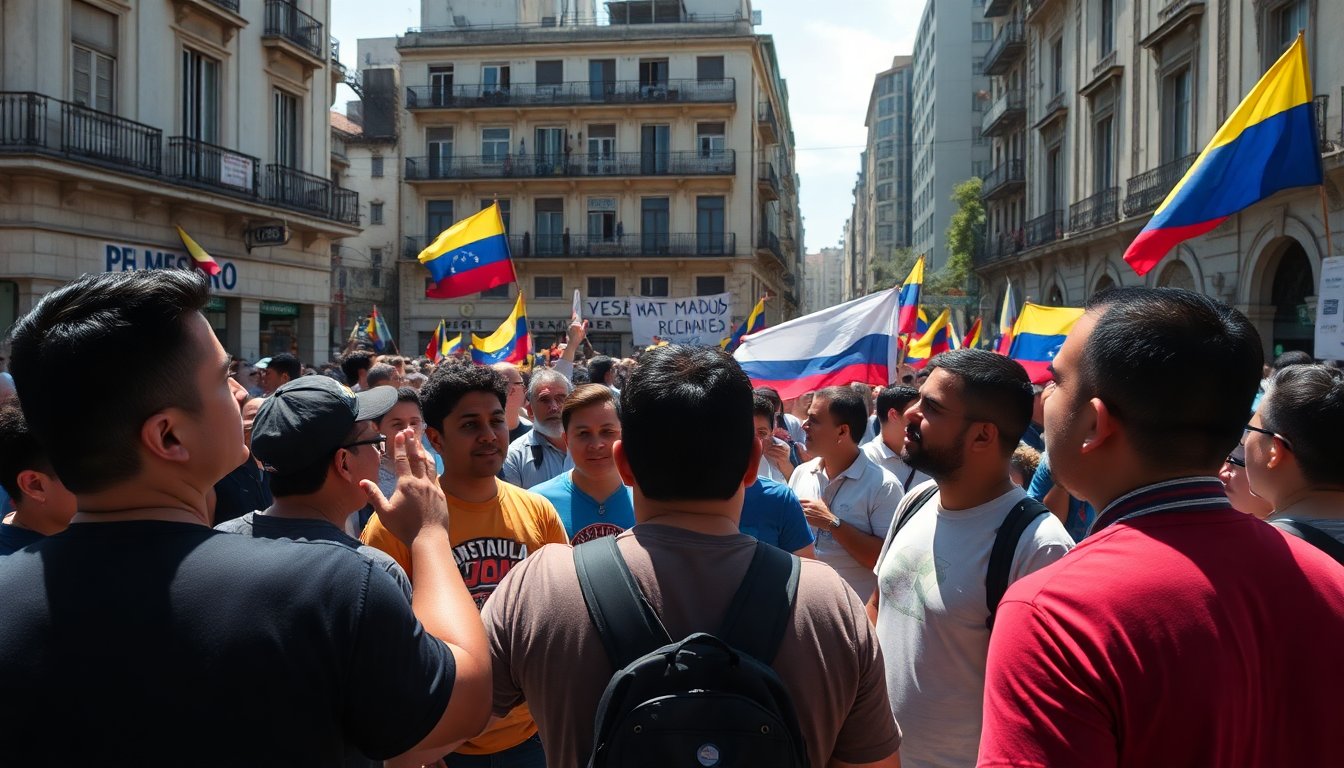Table of Contents
The political landscape in Venezuela is increasingly influenced by actions from the U.S. government, particularly during the tenure of former President Donald Trump. As tensions rise, Venezuelan opposition leader María Corina Machado is strategically aligning her movement with Trump’s methods to remove Nicolás Maduro from power. This shift occurs amid a growing U.S. military presence in the Caribbean, focused on combating drug trafficking associated with Maduro’s regime.
U.S. military actions and Venezuelan politics
Republican Senator Pete Ricketts recently highlighted the threat posed by Venezuelan drug cartels, specifically the notorious Cartel de los Soles. Ricketts claims these cartels receive support from the Venezuelan Navy, which he argues presents a serious security risk for the United States. He praised former President Trump’s military strategies aimed at dismantling these operations, emphasizing the importance of such measures to protect American lives from the growing influx of dangerous narcotics.
Military strategy and congressional oversight
As military operations progress, Democratic lawmakers are increasingly questioning the need for prior consultations with Congress before such actions are initiated. Secretary of State Marco Rubio is scheduled to address the Senate, providing details on the recent attacks on drug boats in international waters. This presentation comes as some congressional members express concerns about the ramifications of unilateral military interventions.
Machado’s recognition and its implications
María Corina Machado received the Nobel Peace Prize in 2025, marking a pivotal moment for the Venezuelan opposition. The award underscores her unwavering commitment to democracy in Venezuela. The Nobel Committee highlighted her as a symbol of civil courage in Latin America, acknowledging her struggles while she faced threats from Maduro’s oppressive regime. The international community, including António Guterres, the UN Secretary-General, hailed the award as a testament to the Venezuelan people’s yearning for free and fair elections.
Global reactions to Machado’s achievement
Responses to Machado’s Nobel Prize victory reflect a wide spectrum of opinions. Former U.S. President Barack Obama stated that this award highlights the ongoing struggle to uphold democratic values. In contrast, the White House initially criticized the accolade as politically motivated, pointing out that former President Trump had been campaigning for a Nobel Prize himself. Meanwhile, leaders from various countries, including Javier Milei of Argentina and Emmanuel Macron of France, offered their congratulations, recognizing Machado’s courage in the face of tyranny.
Venezuela’s response and media censorship
The Venezuelan government’s reaction to Machado’s Nobel Prize has been one of dismissal. State-controlled media have largely ignored the significance of the award or minimized its relevance, framing it as a tactic of international right-wing politics. In the wake of the announcement, the government implemented severe measures, including the closure of its embassy in Norway and restrictions on press coverage regarding Machado’s achievements.
Challenges and ongoing struggles
As Venezuela’s political and social situation worsens, the risks for opposition figures like Machado grow. Despite her global recognition, she remains a target of Maduro’s regime, which has publicly disparaged her with derogatory terms. Nevertheless, her accolade serves as a unifying symbol for the Venezuelan people, igniting a renewed determination to strive for democratic ideals amid pervasive oppression.
The alignment of the Venezuelan opposition with U.S. strategies highlights a significant struggle for freedom. Their goal is to dismantle the entrenched power of Maduro and his allies. Collaborating with international partners, especially in military operations against drug trafficking, represents a crucial step in their pursuit of a democratic Venezuela.


